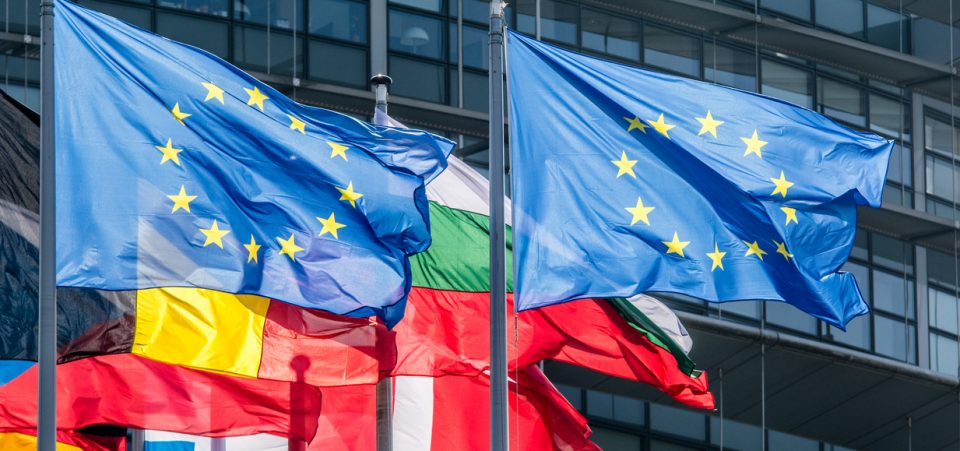If Italy’s Frail New Government Fails, an Economic Crisis Becomes Inevitable
It seemed that Italy was destined to endure a protracted political crisis, revolving around a government vacuum. The vacuum has now been filled and the new government is made up of a frail coalition and even weaker program.
Now, Italy’s ability to achieve a political compromise and avoid another round of elections has saved Europe and the world from another economic crisis.
In a sense, the problem of uncontrolled migration in the Mediterranean gives Italy leverage.
Therefore, an Italian exit from the union would eliminate a series of fail-safe mechanisms. Such mechanisms have allowed the project to survive—if not work outright.
The European Union (EU) has reached a crossroads. If Italy can find a way to thrive, the EU will survive.
The alternative is a breakup and a potentially massive economic crisis from the tremors of an Italian exit from the EU.
For Now, the Economic Crisis Has Been Averted
Despite deep differences on economic, fiscal, and even demographic matters, the two most euro-skeptic political parties make up Italy’s new government.
Together, the parties won almost 60% of the vote. In Italy’s fragmented political system, made up of almost a dozen parties and movements, 60% is significant.
It also means that the parties feel they have the duty to pursue the program their voters expected when they came out of the voting booths on March 4, 2018.
The program, directly or indirectly, could end up breaking the eurozone. “Directly” implies that Italy pulls out—or is forced out. “Indirectly” means that Germany, which has so far benefited the most from the euro system (some would say exclusively), is forced out.
Whether it results from a “Quitaly” or a “Gerxit,” the collapse of the euro would produce a financial earthquake. Its shockwaves would reach all major global markets and trigger an economic crisis.
Because the world has not fully recovered from the sub-prime crash, the effects of any major financial breakdown could be far greater than if the event happened in “isolation.”
What If Germany Were to Leave the EU Instead of Italy?
Much has been said about Italy’s struggle within the eurozone. Before we examine the potential scenario of an Italian departure from the euro, consider an alternative withdrawal scenario with Germany as the protagonist.
A key aspect to consider about a potential German departure from the euro is its plausibility. It’s one of the few countries that could do it in a relatively painless manner.
All others would have to pay debts due to the quantitative easing policy that has helped the EU survive the post-financial crisis mess. Italy would have to pay some €350.0 billion.
Germany, on the other hand, has a surplus. It would get money back from leaving.
That’s the most important incentive, as the eurozone stands today.
Nevertheless, should Italy lead a group of mostly southern countries—the so-called PIGS (Portugal, Italy, Greece, Spain)—to secure a more equitable distribution of obligations within the eurozone, Germany would no longer enjoy the incentive to remain.
A Predatory Trade Surplus
The main problem is Germany’s trade surplus. It has reached some €300.0 billion. The surplus represents the core of the eurozone problem.
Books have been written on the advantages and problems of a trade surplus. For the purposes of the present article, I shall resort to a simple explanation.
Before the euro, Germany had an expensive currency, the Deutsche Mark, compared to the Italian lira, the Greek drachma, or the Spanish peseta.
The aforementioned PIGS had an export advantage and, because they had sovereign control over their currency, they could devalue when necessary to secure a competitive advantage.
Italians Work Just as Hard as Germans
It would be unfair and wrong to suggest that Italian, Greek, or Spanish workers are somehow less efficient or less diligent than their German counterparts now.
In fact, before the euro, the EU’s leading exporter in 2000 was Italy, not Germany.
Germany had struggled with the reunification of East and West since the fall of the Berlin wall and was looking for a solution. France’s President François Mitterrand had concerns about German reunification and the strength of the Deutsche Mark.
That was one of the reasons for the introduction of the euro.
Yet, 16 years after most EU member states adopted the euro, it’s not simply the problem of trade surplus that has emerged. The underlying problem is what we might describe as predatory mercantilism.
Mercantilism and Trade Imbalances
Mercantilism is a practice of conducting economic affairs that Europe practiced especially during the period between the 16th and 17th centuries.
It’s the progenitor of colonialism and favors the idea that a state’s—or nation’s—power increases in direct proportion to its ability to export. The more a nation exports, producing a trade surplus, the stronger it becomes.
The current “imperfection” of the euro stems from this concept. Germany has become a mercantilist power within a union of nation states (the EU) that had agreed to pursue common as well as national interests.
The result has not only been an imbalance of trade; rather, it’s been a complete political and economic disparity.
Some EU countries, of which Germany represents the best example, have also used their surplus to lower their inflation rate below the eurozone-accepted two-percent standard.
The German Formula
Indeed, Germany’s trade surplus formula was predicated on a minimal increase in salaries—and reduced government spending on infrastructure and other public services. The result has been the accumulation of significant competitive advantages.
Ironically, whenever the euro drops in value, Germany gains with respect to the PIGS. The products that make up the core of its surplus become even more competitive within and beyond the EU.
That explains President Donald Trump’s ever more vociferous suggestions to ban the import of German cars in the United States.
It’s no accident that Trump launched a literal trade war, focusing on Germany and China, just days before the start of the G7 Summit in Canada.
Germany’s accumulated gains from the low inflation and the more competitive conditions allow it to literally “colonize” (financially speaking) the so-called less virtuous or “deficit” nations.
Germany can buy up their best businesses and services. In the meantime, Germany has also acquired a political dominance to match its surplus within the EU itself.
The PIGS Have No Option But to Leave
It can control the rules of the EU economy and influence their evolution. That’s why there are few options for the PIGS.
And that’s why society and political discourse have deteriorated.
The rise of the so-called populist—I prefer the term “protest”—parties, Left or Right, in countries like Italy is a trend destined to expand throughout the EU and cause irreparable fissures.
If the EU does not change (and by change, I mean a downsizing of Germany’s stature), the fissures will be irreparable, and one or more states will leave, breaking the union.
Brexit—that is, Great Britain’s departure from the EU—was never going to be as problematic for Europe’s survival.
The U.K. was never part of the eurozone or the Schengen free-movement rules.
Should Germany or Italy leave, the union and a political experiment that has kept peace in Europe since World War II would fold.
All Eyes on Italy
The financial markets—including Wall Street, of course—will be looking closely at Italy over the next few months.
Few expect the new government to last long. It includes disparate political ideologies having to cooperate in a climate full of economic and social hazards.
The signs of any emerging cracks threaten an economic crisis—including, of course, the mere mention of an effort to leave the eurozone.
And, as noted above, Germany—as well as other states—would have plenty to lose from a Quitaly, much more than the threatened Grexit of 2015.
Of course, the new Italian government won support touting the need to either change or abandon the euro.
Thus, the two parties that form the government have a plan to do just that.
One way or another, they will generate waves that Brussels will not be able to ignore.
The White House may give them an unexpected hand, given Trump’s own complaints about Germany’s surplus.
The new Italian government, therefore, could survive and even achieve something useful is it can exploit Italy’s relative position of strength over Germany in the consequences of a departure from the union.
Italy has much to gain and Germany has even more to lose.
But whatever road takes the EU to that point will present difficulties that could translate to heavy shocks that won’t spare the markets, potentially causing another major economic crisis.






